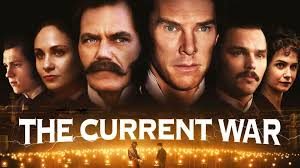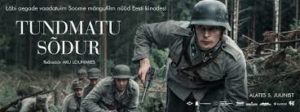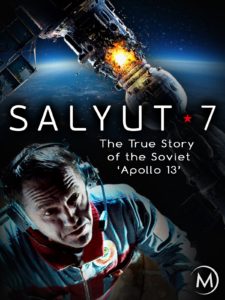Since the early 1950s fear of nuclear conflict has been a major element of both American culture and popular entertainment. Science fiction films such as The Day the Earth Stood Still or The Space Children were Movies with a message warning of the dangers of nuclear war.
In 1964 two major films from two major film makers directly confronted the issues terrors and apprehensions The American people felt about nuclear Armageddon. The two films were Doctor Strangelove or How I Stopped Worrying and Learned to Love the Bomb and Fail Safe. The two films took radically different approaches to the subject with Doctor Strangelove being a farcical satire and Fail Safe being a bleak dramatic portrayal of an accidental nuclear exchange. Both films are critically well regarded with Doctor Strangelove having achieved a far greater amount of cultural penetration and relevance to this day. It is my contention that Doctor Strangelove is not only financially and critically a more successful film but a film which achieves its goal of delivering an anti-nuclear war message more effectively than the more serious and somber Fail Safe.
Doctor Strangelove directed by Stanley Kubrick from a screenplay by Stanley Kubrick Terry Southern and Peter George adapted from the novel Red Alertby Peter George started out as a dramatic interpretation of the novel But as Kubrick worked on the adaptation he found himself drawn to the absurdist nature of nuclear war and converted the project into a black satirical comedy.
In Doctor Strangelove American General Jack D. Ripper lost in paranoid delusions and obsessed with communist conspiracy theories launches an unauthorized nuclear attack on the Soviet Union by his bomber command. As the only person possessing the three letter prefix code which allows communications with the bombers Riper believes that once the administration understands that there is no hope of recalling the attack that The President and the Chiefs of Staff will follow up with a full scale nuclear attack annihilating the Soviet Union. Coordinating with the Soviets the Americans learned that the Soviet Union has constructed a 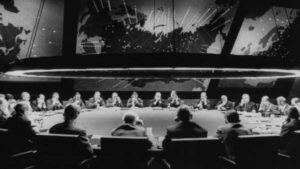 doomsday weapon and that any nuclear attack upon the Soviet will trigger the weapon and end all life on earth. American military forces seize the base commanded by general Ripper and successfully obtains the three-letter prefix for recalling the bombers but one bomber due to battle damage does not receive the recall order proceeds to its secondary target and drops its nuclear payload. The film ends with a montage of nuclear explosion to Vera Lynn singing We’ll Meet Again. While the movie ends with the loss of all life on the planet it is at heart a comedy with broad over the top characters and absurdist situations drawn to exaggeration.
doomsday weapon and that any nuclear attack upon the Soviet will trigger the weapon and end all life on earth. American military forces seize the base commanded by general Ripper and successfully obtains the three-letter prefix for recalling the bombers but one bomber due to battle damage does not receive the recall order proceeds to its secondary target and drops its nuclear payload. The film ends with a montage of nuclear explosion to Vera Lynn singing We’ll Meet Again. While the movie ends with the loss of all life on the planet it is at heart a comedy with broad over the top characters and absurdist situations drawn to exaggeration.
Fail Safe directed by Sidney Lumet written by Walter Bernstein and Peter George based on a novel of the same title by Eugene Burdick and Harvey Wheeler never veers into comedy or absurdity. In fact, throughout the movie’s 112-minute 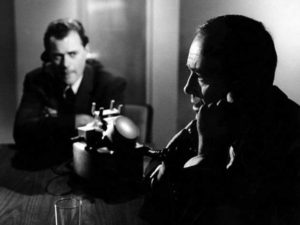 runtime I cannot recall a single scene which lighten the mood or had any comedic effect at all. The entire film is a dramatic intense pressure cooker of a story that never allows the audience a moment of easy breathing.
runtime I cannot recall a single scene which lighten the mood or had any comedic effect at all. The entire film is a dramatic intense pressure cooker of a story that never allows the audience a moment of easy breathing.
In Fail Safe American military forces are brought to a state of high alert with nuclear bombers dispatched to their fail-safe points due to a destressed and off-course commercial airliner. Co incidentally during the crisis a Soviet electronic warfare attack on the US strategic command called is a malfunction which sends an erroneous attack message to one bomber group at their fail-safe point. Once the bomber flight flies past their failsafe point their orders are such as to ignore all communications from the ground and continue on their attack. The president the Strategic Air Command coordinating with the Soviet Union are unable to recall the bombers and unable to destroy all of the flight with one bomber surviving to carry out its nuclear attack on Moscow. In order to prevent on all out nuclear exchange between the two countries the president offers up New York City to the Soviets ordering one of his own bombers to destroy the city to restore the balance. The film ends with the president asking the Premier of the Soviet Union, “what do we tell the dead?”
Between the two films Fail Safe on its surface looks to be more realistic, more grounded, more credible, but on any sort of closer inspection it’s clear that there are deep logical flaws in the plotting of Fail Safe that destroys its credibility. In Doctor Strangelove the administration is unable to recall the bombers because they do not have the prefix code for the encryption device that is used on all radio communications between Strategic Air Command and the bombers in the air this is an utterly credible and believable plot element.
In Fail Safe there is no encrypted communication system there is the simplistic order that once the bombers have proceeded past their fail safe point and begin their attack mission they are to ignore all communication from the ground as being potentially deceptive fraudulent forged attempts by the enemy to divert them. For purposes of a plot this sets up the dilemma quite nicely the bombers are on their way to attack Moscow and due to their orders, they cannot be recalled but it is a ridiculous and unrealistic set of orders that any military would ever implement.
During the crisis a presidential advisor advocates to committing to a full nuclear attack on the Soviet Union. His reasoning is that the Soviet communists would surrender rather than be destroyed in the hopes that at some later date they could still achieve worldwide communist revolution and domination. Even if we set aside the idea that the enemy would simply surrender rather than annihilate their opponents his advice is at odds with the premise of how the story works. Once the bombers have flown past their fail safe point they ignore all additional orders you come out divert them to new targets you cannot recall them you cannot declare peace and stop the war even if the Soviets in this story surrendered as the advisor is advocating they would still be destroyed because you cannot stop your bombers. The plot requires that the bomber pilot ignore orders to be recalled setting up an absurd command situation that no military in the world would tolerate. Once this logical fallacy is exposed the film devolves into a didactic moralistic speech.
The best stories have messages, they have themes that are important but when the message overpowers the storytelling when the story must be broken in order to serve the message then it is like a stage magician that has revealed how an illusion is performed all the magic evaporates and nothing is left behind. Doctor Strangelove a film which ends with the destruction of all human life on the planet never fails to entertain and place fair with all the rules of its own fictional setting. In the end it is the film that is remembered for its talent it’s comedy and its message.




